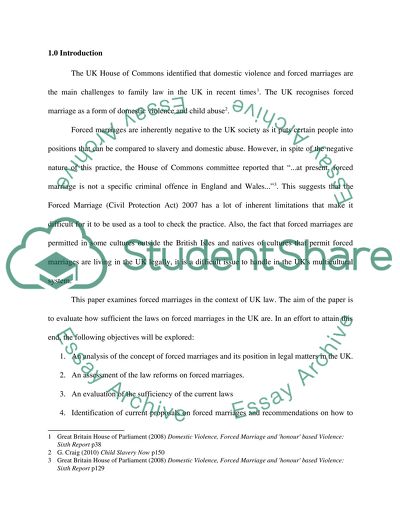Cite this document
(“Forced Marriages and UK Law Essay Example | Topics and Well Written Essays - 4000 words”, n.d.)
Retrieved from https://studentshare.org/law/1398735-forced-marriages-and-uk-law
Retrieved from https://studentshare.org/law/1398735-forced-marriages-and-uk-law
(Forced Marriages and UK Law Essay Example | Topics and Well Written Essays - 4000 Words)
https://studentshare.org/law/1398735-forced-marriages-and-uk-law.
https://studentshare.org/law/1398735-forced-marriages-and-uk-law.
“Forced Marriages and UK Law Essay Example | Topics and Well Written Essays - 4000 Words”, n.d. https://studentshare.org/law/1398735-forced-marriages-and-uk-law.


